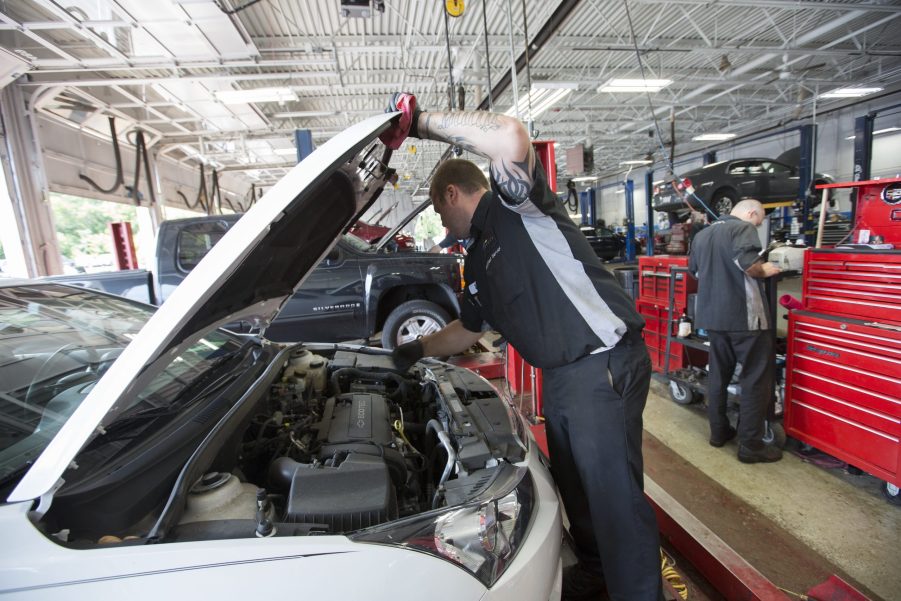
How to Keep Rodents From Eating the Wires Under Your Hood
Unless you have a rat for a pet, you probably don’t want one in the house. The same goes for rats in your vehicle, and it can lead to huge repairs when it’s time for car maintenance. So are rodents getting into your car, and more importantly, how do you keep them out? Consumer Reports has some tips to help you out.
Saving the planet is destroying your car
Saving the planet by using biodegradable materials sounds great on paper. You get to reduce your carbon footprint while driving a great looking vehicle. The best part is when it’s time to retire your vehicle to the landfill, the wires will completely degrade, leaving a cleaner planet for our children.
All that seems pointless when the wires get eaten up by rats, however.
The problem with biodegradable wires is that they’re made from plant-based products. So when a rat wanders by, they take one look at those soy covered wires and think someone just rolled up in a traveling buffet. It’s a treat for mice, squirrels, and rabbits as well.
Not only do the pesky rodents get under the hood, but they begin eating the wires, hoses, plastic, and many other car parts that are sort of essential to making it run. This can lead to fluid leaks, failure to start, and a dashboard that lights up like a Christmas tree with tons of warning lights declaring certain doom awaits.
Some of the automakers using biodegradable wiring include Toyota, Subaru, Ford, GM, and Honda. The problem is so detrimental for some owners that they have resorted to suing Toyota.
Let the lawsuits begin
Toyota owners who were drawn in by the promise of biodegradable wires were left sitting in their own driveway after rats chewed through the wiring, so they resorted to a lawsuit. Things looked hopeful for the owners until the case was dismissed in 2018.
This was based in large part on the fact that the claims were vague, the warranty didn’t cover wiring damage due to hungry rodents, and it was hard to prove the rodents were eating the wire because it was made of soy. There could always be other factors that caused the rats to dine on the wires.
Rather than accepting defeat, the plaintiffs appealed the decision to the Court of Appeals for the Ninth Circuit. This time, the court was on the side of the plaintiffs, and the original ruling was overturned.
Toyota obviously wasn’t happy about the decision and claims that rats will be rats. In other words, it’s not Toyota’s fault. The courts aren’t entirely in disagreement, but there is that pesky fact that vehicles with soy-based wiring tend to be served up on the dinner plate more often than vehicles that use traditional wire coating.
Is your vehicle destined to be eaten by rodents?
If you have a vehicle that has soy-based wiring, there is hope. You can remove it from the dinner menu with a few simple steps that won’t break the bank.
According to Consumer Reports, “We found a clever solution in a TSB from Honda: rodent-deterrent tape, essentially an electrical tape treated with super-spicy capsaicin, which Honda describes as “the stuff that puts the fire in a bowl of five-alarm chili.” The tape (part number 4019-2317) is available through dealers for about $36 for a 20-meter roll, about 22 yards. You’ll also find it online.”
There are other options as well. Some owners plagued by hoards of hungry vermin report that installing a metal mesh around wires, hot sauce, and even mouse poison mixed with peanut butter will do the trick.
Whatever you choose to do, make sure you do your research first. It’s also advisable to ask what sort of wiring your vehicle has if you’re thinking about buying a new vehicle. Saving the planet is great, but not if it means you’re stuck with a huge car payment for a vehicle you can’t even drive.


